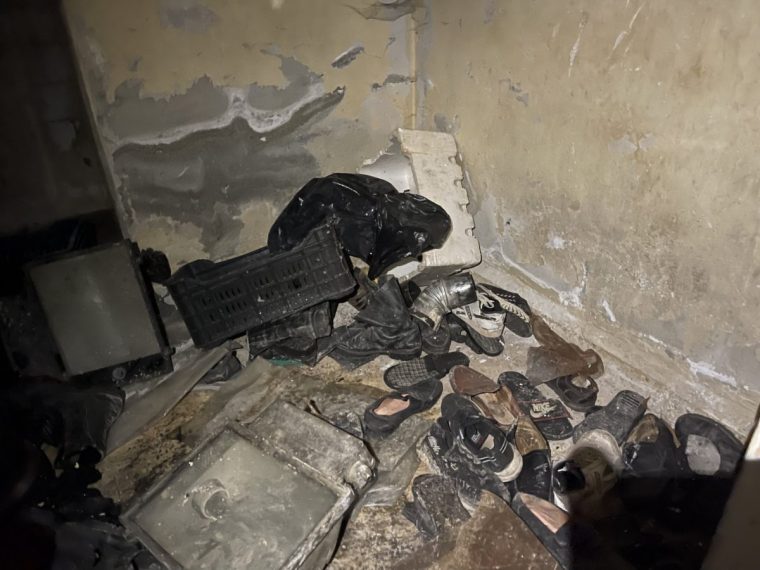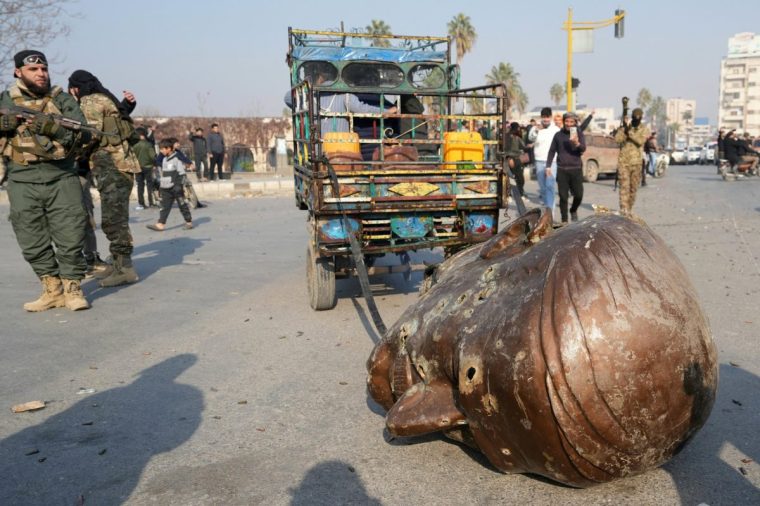The head of Syria’s most powerful rebel faction warned that senior Assad officials would face justice for crimes of the regime, after offering amnesty to enemy soldiers as the country’s new leaders sought to balance demands for accountability with an inclusive approach to postwar governance.
Ahmed al-Sharaa, leader of the Islamist Hayat Tahrir al-Sham (HTS) rebel group that spearheaded the lightning offensive that overthrew president Bashar al-Assad, said regime figures would be pursued after evidence of mass killings and torture was discovered in government prisons.
“We will not hesitate to hold accountable the criminals, murderers, security and army officers involved in torturing the Syrian people,” said Sharaa, previously known by his nom de guerre, Abu Mohammad al-Jolani, on messaging channel, Telegram.
“We will announce a list that includes the names of the most senior officials involved in torturing the Syrian people. We will offer rewards to anyone who provides information about senior army and security officers involved in war crimes.”
Sharaa had previously promised amnesty to conscripted soldiers of the Syrian army, with media footage purporting to show HTS fighters telling captured regime forces they were free.
HTS, an Islamist militant faction and former al-Qaeda affiliate that broke with the group years ago, has espoused an inclusive message since sweeping into regime-held cities, seeking to allay fears of persecution among Syria’s religious and ethnic minorities. Sharaa denounced “sectarianism” in a victory speech at the historic Umayyad mosque in Damascus on Sunday.

But mounting evidence of atrocities against suspected regime opponents in government jails such as the Sednaya complex near Damascus – dubbed a “human slaughterhouse” by Amnesty International – has fuelled demands for accountability. The Syrian Network for Human Rights group said that as many as 100,000 people died behind bars.
Dr Andreas Krieg, a Middle East security analyst and lecturer at King’s College London, said HTS would face internal pressure to bring perpetrators to justice.
“These discoveries have gone viral across Syria and the Arab world…and I think it creates public pressure for accountability, and especially within the ranks of the opposition [factions], which have suffered disproportionately,” he said. “It was people who were alleged to be part of the opposition, even 10 years ago, who have disappeared.”
Syrian and international human rights groups have collected evidence of alleged regime crimes throughout the 13-year civil war in the hope of bringing Assad and his Ba’ath Party lieutenants to justice. The US government announced on Tuesday that two Syrian former intelligence officers had been indicted on war crimes charges.
But HTS and their allies are unlikely to support an international law process, Dr Krieg said, suggesting it more likely that senior regime officials – who have not fled the country – could be tried in local Islamic courts.

While there have been a handful of reports of regime figures being subjected to mob justice – one clip from the port town of Latakia purported to show an Assad ally being hung – there is as yet little indication of a violent purge of the kind that followed the fall of Saddam Hussein in Iraq in 2003, when hundreds were killed in revenge attacks, Dr Krieg said.
Ghassan Ibrahim, a Syrian-British journalist and founder of the Global Arab Network news outlet, said some senior regime figures were likely to be pursued – including family members of Assad – but believes there is no appetite for broad retribution that could prove destabilising.
“I’m happy that the Syrians don’t want to follow the Iraqi [example],” he said. “They don’t want to cleanse the Ba’athists. They don’t want to cleanse the army. They just want to restructure everything.”
Ibrahim added that any trials would have to wait for the formation of new institutions, including a new justice system.
“Talking about accountability, it’s difficult to achieve it because we don’t have the full institutions running in the country,” he said. “We don’t have proper judges, we don’t have local ministries.”
The analyst also questioned whether HTS were in a position to announce policies such as pursuing claims against Assad officials, noting that a variety of opposition groups would expect representation in a new government.
The rebels announced on Tuesday that Mohammed al-Bashir, previously an administrator in HTS-held Idlib, would serve as prime minister in a transitional government until 1 March.


